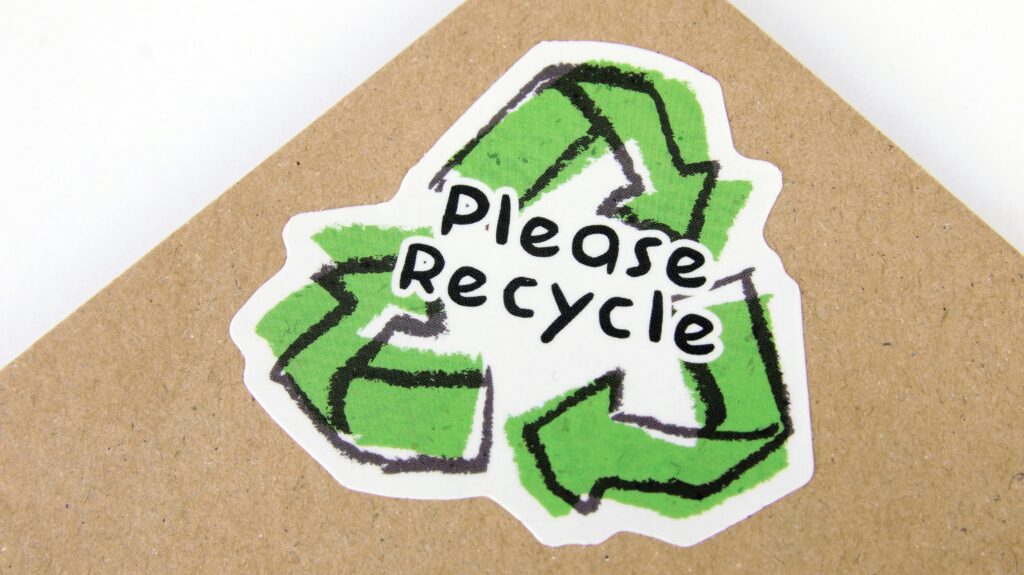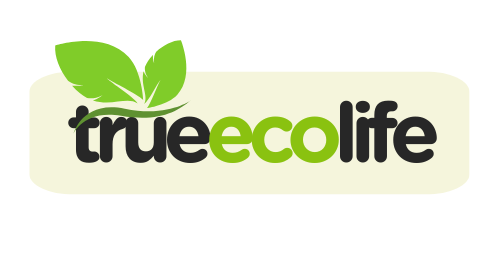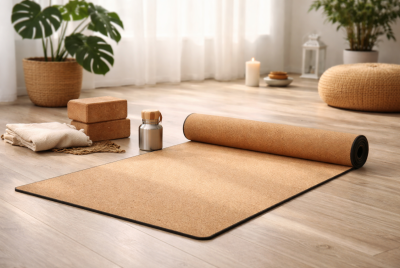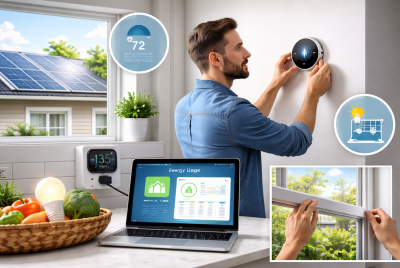How Sustainable Goods Contribute to a Cleaner Environment
We may earn a commission for purchases made using our links. Please see our disclosure to learn more.
It’s pretty obvious that the environment we all live in is facing some serious challenges right now. Have you ever noticed how the weather changes these days? We should be very concerned about what’s happening around us if we want to ensure a greener future. Actually, there are many ways to create a positive impact on Mother Earth. As simple as choosing sustainable goods can make a big difference! But what exactly are they? Let’s dive in and explore how these products can contribute to a cleaner, greener world.
What Are Sustainable Goods?
Products that are manufactured in eco-friendly methods are known as “sustainable goods”. They frequently utilize less energy during production, generate less trash, and employ renewable resources. Sustainable products are made with the environment in mind, as opposed to conventional products that might damage it. It’s similar to selecting a durable item over a throwaway one, but it’s also better for the environment.
The Growing Need for Sustainable Goods
Sustainable products are more significant than ever as the world’s population rises and resources become more limited. Consider this: each time we buy something, we are casting our vote for the future we desire. We can lessen waste, pollution, and resource depletion by purchasing sustainable items. When millions of people make this tiny decision, it can have a significant effect.
Reducing Carbon Emissions with Sustainable Goods
One of the main causes of climate change is carbon emissions. Despite this, by utilizing less energy and resources during manufacture, sustainable products contribute to the reduction of these emissions. For instance, the carbon footprint of products manufactured using recycled materials or renewable energy is significantly lower than that of products made using conventional methods. Thus, each time you make a sustainable choice, you contribute to lowering the atmospheric concentration of greenhouse gases.
Sustainable Goods Help Conserve Natural Resources
Minerals, water, oil, and other natural resources are finite. Oh, do you think they won’t run out? Nope. They go as soon as we use them up! Sustainable products are crucial because of this. Because they use less resources and frequently contain recycled materials, they help preserve what we have left. Products created from recycled plastic or organic cotton, for example, are contributing to the preservation of the planet’s most precious resources.
Promoting the Use of Renewable Resources
The fact that sustainable goods often employ renewable resources is one of their distinguishing characteristics. It’s likely that you’ve heard about wind, solar, and sustainable materials like organic cotton and bamboo. These resources don’t run out like fossil fuels do since they are organically restored throughout time. Therefore, you are contributing to the creation of a future in which we may use what we need without running out when you choose products derived from these renewable resources.
The Role of Energy Efficiency in Sustainable Goods
Energy efficiency isn’t just for your appliances at home—it applies to the products you buy, too. Sustainable goods often incorporate energy-efficient designs, such as low-energy lightbulbs or appliances that use less power. This helps reduce the demand for energy, meaning less pollution and lower utility bills. So, not only are you saving the environment, but you’re saving a little bit of cash as well.
Waste Reduction Through Sustainable Goods
We all know about the growing problem of waste, especially plastic waste. Unfortunately, many conventional products end up in landfills, where they sit for hundreds of years. But sustainable goods are different. They’re often designed to last longer and can often be recycled. For example, some products can be composted, while others can be broken down and reused in new products. By choosing these goods, you’re helping reduce the amount of waste we produce.
The Power of Recycled Materials
Recycling is one of the best ways to reduce waste and conserve resources, and sustainable goods often make use of recycled materials. Think about products made from recycled plastic, paper, or metal—they’re helping to reduce the demand for virgin materials and lower the energy needed to produce new ones. By buying these products, you’re giving recycled materials a second life and contributing to a less wasteful world.

Sustainable Goods Foster a Circular Economy
The traditional “take-make-dispose” economy isn’t sustainable in the long run. But sustainable goods help us move toward a circular economy, where products are designed to be reused, repaired, and recycled. Instead of throwing things away after we use them, we keep them in circulation as long as possible. It’s like buying a quality item that can be fixed up and used again, rather than something that’s destined for the trash after a few uses.
How Sustainable Goods Benefit Biodiversity
Biodiversity is the variety of life on Earth, and it’s crucial for a healthy planet. But unsustainable practices, like deforestation and overfishing, threaten our ecosystems. Sustainable goods help protect biodiversity by sourcing materials responsibly. For example, sustainably harvested wood or fair-trade products ensure that ecosystems remain intact while still providing us with the resources we need.
Sustainable Goods Encourage Ethical Practices
Sustainability isn’t just about the environment—it’s also about the people who make the products. Sustainable goods are often produced with fair labor practices, ensuring workers are treated ethically. When you choose sustainable products, you’re supporting companies that prioritize social responsibility and fairness. It’s a way of helping create a world where businesses do right by both people and the planet.
Consumer Behavior and Sustainable Product Choices: Key Insights
Recent studies highlight the growing importance of consumer behavior in shaping sustainable product choices. One study published on ScienceDirect explores how product design and environmental concerns influence consumer decisions, emphasizing the need for brands to adopt eco-friendly practices to meet consumer demand (ScienceDirect article). Similarly, insights from ResearchGate focus on how visual trends and social influences impact consumer preferences for sustainable goods, underlining the role of aesthetics in promoting eco-friendly products (ResearchGate study). These studies collectively show that understanding consumer psychology is crucial for businesses aiming to succeed in the growing market for sustainable goods.

Top Sustainable Products for a Cleaner Environment
If you’re ready to make the switch to more eco-friendly options, here’s a list of sustainable products that can help reduce your environmental footprint while improving your lifestyle:
- Reusable Water Bottles
Say goodbye to single-use plastic bottles and opt for stainless steel or glass water bottles. They keep your drinks cold or hot for hours, are long-lasting, and reduce waste. - Eco-Friendly Cleaning Products
Choose cleaning products that use natural ingredients and come in biodegradable or recyclable packaging. Brands like Method or Mrs. Meyers offer non-toxic, environmentally friendly alternatives to traditional cleaners. - Organic Cotton Clothing
Organic cotton is grown without harmful pesticides, which is better for both the planet and your skin. Look for brands like Patagonia or People Tree for stylish, sustainable clothing options. - Solar-Powered Chargers
Power your devices with solar energy. Solar-powered chargers reduce your reliance on grid electricity and are a fantastic option for those who want to go off-grid or reduce their carbon footprint. - Bamboo Toothbrushes
Made from biodegradable bamboo, these toothbrushes are a great alternative to plastic. Bamboo is sustainable, and these brushes help reduce plastic waste that ends up in landfills.
By choosing these sustainable products, you’re making a real difference in helping to create a cleaner and more sustainable environment!
Conclusion
Choosing sustainable goods is one of the easiest ways we can all make a positive impact on the environment. Whether it’s reducing carbon emissions, conserving resources, or supporting ethical practices, every sustainable product you buy helps create a cleaner, greener world. So, the next time you’re out shopping, think about the power your choices hold. It’s not just about buying—it’s about supporting a movement for a more sustainable future.
FAQs
1. What are sustainable goods?
Sustainable goods are products that are made in ways that have minimal impact on the environment. They’re designed to be resource-efficient, reduce waste, and support ethical practices.
2. How do sustainable goods reduce carbon emissions?
Sustainable goods are often produced using less energy and fewer resources, which leads to a smaller carbon footprint. Many also use renewable energy sources, which further reduces emissions.
3. What are some examples of sustainable goods?
Examples include products made from recycled materials, energy-efficient appliances, organic clothing, and biodegradable packaging.
4. Why should I choose sustainable goods?
Choosing sustainable goods helps reduce environmental pollution, conserve resources, and support ethical labor practices. It’s a simple way to make a positive impact on the planet.
5. Are sustainable goods more expensive?
While some sustainable goods may cost a bit more upfront, they tend to be more durable and energy-efficient, which can save you money in the long run. Plus, the environmental benefits are priceless!




